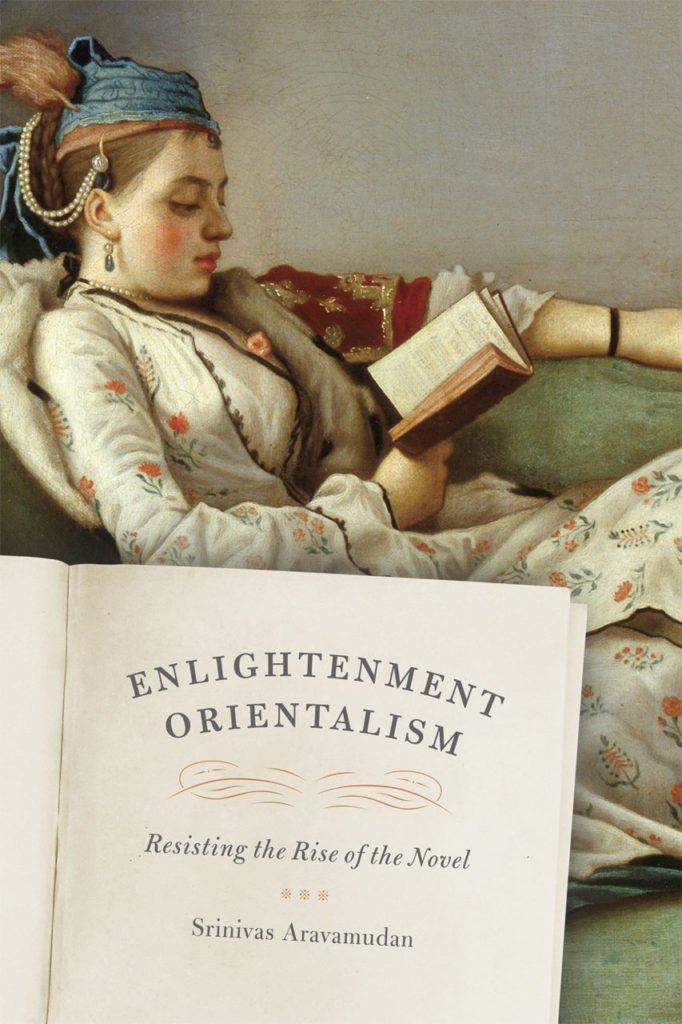What Are You Reading?: Padma Rangarajan
We are pleased to continue our 'What are you reading?' series by presenting an interview with Dr. Padma Rangarajan (University of California, Riverside). Dr. Rangarajan is a recipient of the K-SAA Pforzheimer Research Grant and is the author of Imperial Babel: Translation, Exoticism, and the Long Nineteenth Century (Fordham UP, 2014). Her essays have been published in ELH, Romanticism, English Language Notes, and Nineteenth-Century Studies. She is currently at work on Thug Life: The British Empire and the Birth of Terrorism, a book-length study of terrorism in the colonial literary imagination.

What new studies of Romantic literature are you reading right now?
I'm reading Richard Bourke's Empire and Revolution: The Political Life of Edmund Burke, Christopher Bundock's Romantic Prophecy and the Resistance to Historicism, Sunil Agnani's Hating Empire Properly: The Two Indies and the Limits of Enlightenment Anticolonialism, and Julia Wright's Representing the National Landscape in Irish Romanticism.
Does this writing inform your current research and/or teaching?
Absolutely! Bourke and Wright are really helping me find the intersections between global and regional colonialisms. Bourke's book isn't a study of literature per se, but his multifaceted analysis of Burke does such a great job of tying together Burke's seemingly distinct interests in Ireland, India, France, and America. It provides a broad context for Agnani's book, which is also usefully global. Julia Wright's book is full of wonderful resources and detailed readings that are indispensible now that I've rashly dived head-first into the complex history of Irish literature. There are a lot of prophecies in the "terrorist" literature that I'm reading; I haven't been able to escape it. I'm hoping Bundock's book will help me understand why.

What’s the critical book that figured most significantly in your PhD thesis/first monograph/most recent monograph?
Nigel Leask's British Romantic Writers and the East was my intellectual life raft during the first year of dissertation writing when I was flailing around with no methodological purpose. When the dissertation morphed into the book, particularly in its late stages, I found Srinivas Aravamudan's Enlightenment Orientalism incredibly useful. For this most recent project the books I've been returning to again and again are Mary Favret's War at a Distance, Alex Tickell's Terrorism, Insurgency, and Indian-English Literature, and Luke Gibbons' Edmund Burke and Ireland. That's three books, not one, but it's so difficult to choose!

What books are in your 'to read next' pile right now? (poetry, fiction, theory, anything!)
I'm waiting to read Ian Duncan's Human Forms: The Novel in the Age of Evolution, which will be fantastic. I'm also hoping to find time sometime soon to read All God's Dangers: The Life of Nate Shaw; At the End of the Century: The Stories of Ruth Prawer Jhabvala; and the Pevear-Volokonsky translation of Anna Karenina.
What books are on your night table or desk?
Aside from about 7 old New Yorkers, my night stand has Penelope Fitzgerald's The Blue Flower and Margaret Atwood's Alias Grace on it. Glancing at my desk I see Alberto Toscano's Fanaticism: The Uses of an Idea; Marc Redfield's The Rhetoric of Terror; John Mee's Romanticism, Enthusiasm, and Regulation; Nasser Hussain's The Jurisprudence of Emergency; Ian Duncan's Scott's Shadow; and an edited collection, Violent Geographies: Fear, Terror, and Political Violence. My desk is a bit grim.

Which book do you most frequently recommend to your students? Which students? Why?
I've often recommended Marilyn Butler's Romantics, Rebels, and Reactionaries to undergrads who are interested in Romanticism. It's such a lively, accessible book.
Have there been any mainstream articles or publications on the Romantics you’d like to draw our attention to?
Last December NPR published an article on early 19th-century West-Indian missionary Bibles that omitted passages that might inspire rebellion or unrest. I had just been teaching my students about the British invasion of Saint Domingue, so it was perfect.

